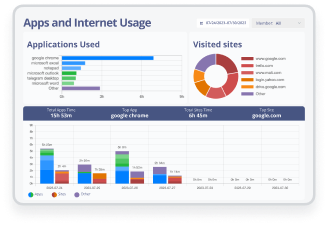Mastering Time Management: A Guide for Teams and Leaders

Mastering Time Management is essential for teams and leaders to maximize productivity and achieve success. By efficiently managing time, individuals can meet deadlines, prioritize tasks, and maintain a healthy work-life balance. This comprehensive guide will provide insights into understanding time management, key principles of effective time management, strategies for teams and leaders, overcoming time management challenges, and tips for personal and professional time management.
What time management entails
Time management involves planning, organizing, and prioritizing tasks to make the most efficient use of time.

It helps individuals allocate their time effectively to achieve goals, meet deadlines, and reduce stress.
Time management is particularly important in team settings and leadership roles. Effective time management for teams allows for better coordination, improved communication, and increased productivity. For leaders, efficient time management sets an example for their team, helps in decision-making, and ensures efficient use of resources.
The key principles of effective time management include setting clear goals and priorities, creating and following a schedule, avoiding procrastination, delegating tasks, and balancing workload. These principles provide a framework for individuals and teams to manage time effectively and achieve desired outcomes.
Effective time management strategies for teams include effective communication and collaboration, establishing deadlines and milestones, utilizing technology and tools, and conducting regular progress assessments.
These strategies foster teamwork, enhance productivity, and ensure the successful completion of projects.
Leaders can employ specific time management strategies to optimize their effectiveness. These strategies involve leading by example, setting clear expectations, providing resources and support, and empowering and motivating team members. By implementing these strategies, leaders can steer their team towards success and create a positive work environment.

Furthermore, this guide addresses common time management challenges such as managing interruptions and distractions, overcoming procrastination, and dealing with changing priorities. Practical tips and techniques will be provided to help individuals overcome these challenges and optimize their time management skills.
Finally, the guide concludes with tips for personal and professional time management. Prioritizing self-care, continuous learning, and seeking work-life balance are crucial components of effective time management that contribute to overall productivity and well-being.
By following the principles, strategies, and tips outlined in this guide, teams and leaders can master time management and unlock their full potential for success.
Key takeaways:
Understanding Time Management
Understanding time management is essential for teams and leaders to optimize productivity and accomplish objectives. It entails prioritizing tasks, establishing feasible deadlines, and efficiently delegating responsibilities. By practicing effective time management, individuals can reduce stress, meet deadlines, and enhance overall efficiency.
Fun fact. Effective time management has the potential to increase productivity by 25%.
Time management is the practice of organizing and prioritizing tasks, projects, and responsibilities to make the most efficient use of time. It involves setting clear goals, creating schedules, avoiding procrastination, and delegating tasks. Effective time management boosts productivity and reduces stress.
Some suggestions for better time management include:
- Breaking tasks into smaller, manageable parts
- Using time blocking to allocate specific time for different activities
- Prioritizing essential responsibilities and focusing on high-priority tasks
- Avoiding common time-wasting traps, such as excessive meetings or social media
- Tracking time to identify patterns and areas for improvement
Why is Time Management Important for Teams and Leaders?
Time management is essential for teams and leaders as it plays a vital role in increasing productivity, meeting deadlines, and achieving goals. By effectively scheduling tasks, prioritizing them, and avoiding procrastination, team productivity can be ensured. Moreover, time management helps in maintaining a well-balanced workload, overcoming challenges, and reducing stress. With the practice of time management skills, teams and leaders can accomplish more and avoid wasting valuable time on unproductive tasks.
Get more out of your business
Get the best employee engagement content every week via mailing list
Key Principles of Effective Time Management
When it comes to effective time management, mastering the key principles is crucial. In this section, we will dive into the core concepts that contribute to effective time management. We’ll explore setting clear goals and priorities, creating and following a schedule, avoiding procrastination, delegating tasks, and finding that delicate balance in our workload. Join us as we unlock the secrets to maximizing productivity and achieving success in our personal and professional lives. Together, let’s take control of our time and make every moment count!
Setting Clear Goals and Priorities
- Setting clear goals and priorities allows you to focus your time and energy on tasks that align with your objectives and bring you closer to achieving your desired outcomes
- Break down large goals into smaller, manageable tasks
- Create a prioritized list of tasks based on urgency and importance
- Allocate sufficient time for each task in your schedule
- Regularly review and adjust your priorities as needed
Creating and Following a Schedule
For effective time management, it is crucial to create and follow a schedule. Here are some helpful steps to keep you on the right track:
- Start by identifying your priorities and goals
- Break down tasks into manageable chunks
- Allocate specific time slots for each task
- Set realistic deadlines
- Use digital tools or a planner to organize your schedule
Pro-tip: Make sure to regularly review and update your schedule to adapt to any changes and ensure maximum productivity.
Avoiding Procrastination

To prevent procrastination, consider these strategies. Firstly, establish clear objectives and prioritize your tasks accordingly. Secondly, develop a well-structured plan and create a schedule to follow. Thirdly, utilize time-tracking techniques effectively. Fourthly, break down tasks into smaller, more manageable steps. Additionally, it is important to eliminate distractions and establish a work environment that promotes focus. Set realistic time limits for each task and demonstrate self-discipline by holding yourself accountable. Seek support and assistance whenever necessary. Lastly, reward yourself for task completion and maintain motivation by visualizing the benefits that come with successfully finishing your tasks. Keep in mind that consistency and discipline are essential for avoiding procrastination and achieving productivity.
Delegating Tasks
Delegating tasks is crucial for effective time management. Here are some steps to follow:

Pro-tip: Delegating tasks not only saves time but also empowers team members and promotes growth.
Creating and Following a Schedule
For effective time management, it is crucial to create and follow a schedule. Here are some helpful steps to keep you on the right track:

- Start by identifying your priorities and goals
- Break down tasks into manageable chunks
- Allocate specific time slots for each task
- Set realistic deadlines
- Use digital tools or a planner to organize your schedule
Pro-tip: Make sure to regularly review and update your schedule to adapt to any changes and ensure maximum productivity.
Balancing Workload
To effectively balance your workload and prevent stress-related issues in the workplace, it is important to incorporate the following strategies
By implementing these practices, you can effectively balance your workload and enhance your productivity in the long run.

Effective Time Management Strategies for Teams
Looking to level up your team’s time management skills? In this section, we’ll explore some effective strategies for optimizing time management in a team setting. From enhancing communication and collaboration to setting deadlines and utilizing technology and tools, we’ll cover it all. Plus, we’ll dive into the importance of conducting regular progress assessments to ensure your team stays on track. Get ready to unlock your team’s full potential and master the art of time management!
Effective Communication and Collaboration
- Effective communication and collaboration ensures clear understanding and reduces misunderstandings within a team
- Collaboration promotes teamwork and enhances creativity and problem-solving
- Regular team meetings and open communication channels foster effective collaboration
- Active listening and providing constructive feedback are essential communication skills
- Utilizing collaboration tools and technology facilitates remote collaboration and improves efficiency
Establishing Deadlines and Milestones
- Establish clear objectives for the project or task
- Break down the objectives into smaller, manageable tasks
- Assign specific deadlines to each task while also establishing milestones to track progress
- Regularly review and adjust the deadlines and milestones if needed to ensure timely completion
- Communicate the deadlines and milestones to the team members
- Celebrate achievements when milestones are reached
Using Technology and Tools

Trello, Asana
Productivity apps — manage tasks & deadlines efficiently

Monitask
Time tracking tools — monitor time spent on different tasks and identify areas for improvement

Basecamp, Monday.com
Project management software — for effective collaboration and tracking progress

Zapier, IFTTT
Automation — streamline repetitive tasks & save time

Google Calendar, Outlook
Calendar and scheduling tools — stay organized & manage appointments effectively
Conducting Regular Progress Assessments
- Set specific goals and milestones for the project or task
- Regularly review progress and compare it against the established goals and milestones
- Identify any deviations from the planned timeline or objectives
- Active listening and providing constructive feedback are essential communication skills
- Analyze the reasons for the deviations and assess their impact on the overall progress
- Take corrective actions to address any shortcomings or obstacles that are hindering progress
- Communicate the assessment findings and the necessary actions to the team members
- Reassess the progress at regular intervals to ensure that the actions taken are yielding the desired results
- Make any necessary adjustments to the project plan or strategies based on the progress assessments
True story: When managing a large-scale construction project, conducting regular progress assessments were crucial in ensuring that the project was on track. By conducting weekly assessments, we were able to identify any delays or issues early on and implement corrective measures promptly.
This allowed us to complete the project within the scheduled timeline and budget, ultimately leading to its success.

Effective Time Management Strategies for Leaders
Looking to enhance your time management skills as a leader? This section dives into effective strategies that can make a significant impact on your productivity and team performance. From leading by example to empowering and motivating team members, we unpack various techniques backed by reliable sources to help you optimize your time management approach. Get ready to unlock your true leadership potential and achieve better results with these proven strategies.
Leading by Example
Leading by Example is crucial for effective time management in teams and leaders
- By showcasing good time management practices, leaders inspire their team members to prioritize tasks and meet deadlines
- Leading by Example promotes a culture of accountability and productivity within the team
- When leaders prioritize and manage their time effectively, it sets a standard for the team to follow
Setting Clear Expectations
Setting clear expectations is of utmost importance when it comes to effective time management. In order to boost productivity and minimize any potential confusion, it is advisable to take the following steps:
- Ensure a clear and transparent communication regarding project goals, deadlines, and deliverables
- Clearly define the roles and responsibilities assigned to each team member
- Establish realistic timelines and milestones that can be accomplished
- Provide a clear explanation of the quality standards and the expected output of the work
- Regularly touch base with the team and offer constructive feedback to ensure everyone is on the same page
Providing Resources and Support
When it comes to effective time management, providing resources and support is crucial for teams and leaders. Here are some key strategies:
- Allocate necessary tools, technology, and equipment to provide resources and support for efficient work
- Offer training and development opportunities to enhance skills and knowledge
- Provide mentorship and guidance to help team members overcome challenges and offer resources and support
- Establish clear communication channels for effective collaboration and problem-solving
- Offer flexibility and autonomy to empower individuals to manage their time effectively and provide resources and support
Empowering and Motivating Team Members
Empowering and motivating team members is essential for creating a productive work environment. Leaders should ensure they provide their team with clear expectations, necessary resources, and ongoing support. By leading by example and empowering individual employees, leaders can effectively boost productivity and achieve shared goals.
Motivation among team members can be fostered through recognizing their efforts, providing opportunities for growth, and ensuring open and effective communication channels. A remarkable historical example of empowering and motivating team members is evident in the actions of Florence Nightingale during the Crimean War. Through her strong leadership and motivation, Nightingale empowered her nursing team, resulting in significantly improved patient care and reduced mortality rates.
Overcoming Time Management Challenges
Overcoming time management challenges can be a daunting task, but fear not! We will dive into the secrets of effective time management in this section. From managing interruptions and distractions, to overcoming procrastination and dealing with changing priorities, get ready to unlock your productivity potential and take control of your time! Say goodbye to wasted hours and hello to a more efficient and successful workday. Let’s conquer these challenges together!
Managing Interruptions and Distractions
- Identify common sources of interruptions and distractions in your work environment
- Create a designated workspace free from distractions
- Use technology tools like productivity apps or website blockers to limit distractions
- Establish boundaries with colleagues and communicate your need for uninterrupted work time
- Develop strategies to manage unexpected interruptions or distractions, such as setting aside specific time for addressing urgent issues
Overcoming Procrastination

Dealing with Changing Priorities

- Prioritize tasks based on importance and urgency
- Communicate with team members and stakeholders about the changes and reassess priorities together
- Adjust the schedule and allocate sufficient time for new priorities
- Delegate tasks that can be handled by others to free up time for the new priorities
- Stay flexible and adapt to the changing circumstances while maintaining focus
Tips for Personal and Professional Time Management
When it comes to mastering time management, personal and professional aspects go hand in hand. In this section, we’ll explore some valuable tips that can help you prioritize self-care, embrace continuous learning and skill development, and seek that elusive work-life balance we all strive for. So, get ready to supercharge your productivity and make the most out of your precious time, both in and out of the office!
Empowering and Motivating Team Members
Incorporating self-care is of utmost importance when it comes to effective time management.
To ensure productivity and alleviate stress, it is essential for individuals to allocate time for rest, exercise, and engaging in enjoyable activities. By making self-care a priority in their schedules, people can enhance their overall well-being and improve their ability to effectively manage time.
Don’t forget to prioritize self-care and set aside time for activities that bring happiness and relaxation.
Continuous Learning and Skill Development
- Embrace a growth mindset and actively seek opportunities for continuous learning and skill development
- Attend workshops, seminars, or conferences to enhance your knowledge and stay updated with industry trends for professional development
- Enroll in online courses or certifications to acquire new skills and expand your expertise in continuous learning and skill development
- Connect with professionals in your field to exchange knowledge and learn from their experiences for networking
- Make reading a habit and explore books related to your profession to gain new insights and perspectives for continuous learning and skill development
Pro tip: Dedicate a specific time each week for continuous learning and create a personalized development plan to track your progress
Seeking Work-Life Balance
Seeking work-life balance is crucial for overall well-being and productivity. It is essential to find a balance between work and personal life to ensure time for relaxation and family. Here are some strategies to achieve it:
Finding work-life balance requires making mindful choices and consistently putting in effort. However, it is crucial for long-term happiness and success.
Frequently Asked Questions
How can leaders ensure team productivity while managing their own time?
Leaders can ensure team productivity while managing their own time by setting clear goals and priorities. By aligning the team’s efforts towards a shared vision, leaders can create a stable environment that allows for effective time management. Delegating tasks to team members based on their skills and knowledge can also free up the leader’s time for strategic planning. Minimizing distractions, such as excessive meetings and non-essential websites, is important for maintaining productivity.
What strategies can help overcome procrastination and improve work quality?
To overcome procrastination and improve work quality, strategies like the “Eat That Frog” method can be implemented. This involves tackling the most difficult task first, which helps overcome the tendency to procrastinate. Breaking down goals into smaller, measurable steps and setting realistic timelines can also help in better planning and execution. By avoiding multitasking and implementing focused work practices, you can give tasks your undivided attention, leading to improved work quality.
How can leaders optimize their time when dealing with cross-functional initiatives and higher-level responsibilities?
When dealing with cross-functional initiatives and higher-level responsibilities, leaders can optimize their time by prioritizing key strategic projects. By understanding the 80/20 rule, leaders can identify the tasks that will yield the most significant results and focus their attention on those. Delegating non-essential responsibilities and outsourcing certain tasks can also free up time for leaders to concentrate on high-value activities. Additionally, utilizing time buffers and being flexible to address unforeseen circumstances is important in managing these initiatives effectively.
How can engineering managers balance coding tasks with other responsibilities?
Engineering managers face the challenge of balancing coding tasks with other responsibilities. To achieve this balance, effective scheduling and prioritization techniques can be employed. Breaking down goals into smaller tasks and allocating dedicated time slots for coding can help ensure that these tasks are not neglected. It is also crucial for managers to delegate tasks effectively, leveraging the skills and expertise of their team members. By optimizing time and minimizing distractions, engineering managers can strike a balance between coding and other managerial responsibilities.
How can building an effective team contribute to better time management?
Building an effective team is crucial for better time management. By assigning team roles and responsibilities based on individual strengths, leaders can ensure that tasks are distributed efficiently. Effective interpersonal communication within the team helps in coordinating efforts and resolving any technical problems seamlessly. Leaders can also invest time and energy in building a stable team environment, fostering collaboration and trust. By creating a supportive atmosphere, teams can work together to identify and address any quality issues promptly, contributing to overall better time management within the team.


